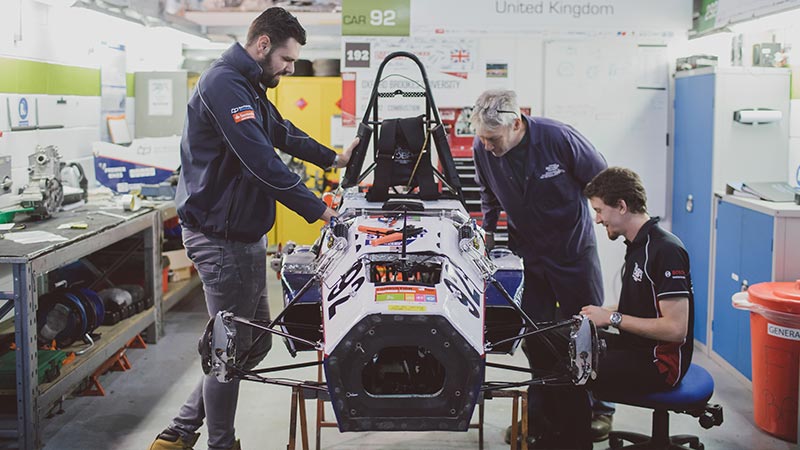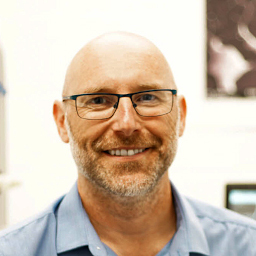Engineering
MPhil or PhD or Masters by Research or PhD by Published Work
A dynamic and thriving research environment
Key facts
Start dates
June 2025 / September 2025 / January 2026 / June 2026 / September 2026
Application deadline
It is recommended that you apply at least 6 months in advance to allow adequate time for your application to be processed (in the case of UK/EU applicants no less than 4-6 weeks).
Location
Course length
Full time: 1 - 3 years
Part time: 2 - 6 years
Funding status
Self-funded
Overview
The School of Engineering, Computing and Mathematics provides a dynamic multidisciplinary environment to carry out research on some of the most important issues facing global society.
Completing a research degree with us means that you will have regular interaction with internationally recognised industrial researchers. You will immerse yourself in a dynamic research environment and find various opportunities to contribute to wider research, teaching and funding proposals.
We welcome research proposals related to any of the subjects covered by our research groups.

Degree routes
All students enrol as probationer research students. During the first year you will formally register your research proposal for one of the below routes.
The degree for which you register will depend on your academic qualifications and research experience.
MPhil (with possibility of transfer to PhD)
Most students initially register for an MPhil with the possibility of transfer to a PhD without submitting for an MPhil. During your MPhil you will:
- critically investigate and evaluate an approved topic
- demonstrate understanding of research methods appropriate to the chosen field
- present and defend a substantial thesis by oral examination.
Length of study
- Full Time: min 2 years, max 3 years for MPhil component only; for MPhil/PhD, min 3 years, max 5 years.
- Part Time: min 3 years, max 4 years for MPhil component only; for MPhil/PhD, min 4 years, max 6 years.
Entry requirement: the minimum entry requirement for an MPhil degree, or an MPhil with the intention of transferring to a PhD, is:
- a first-class or upper second-class UK honours degree
- a relevant master’s qualification
- or an equivalent qualification.
Applications from those holding qualifications other than the above will be considered on their merits and in relation to the nature and scope of the work proposed.
PhD direct
The criteria for a PhD are similar to those for an MPhil, with the key difference that:
- the research carried out will result in an independent and original contribution to knowledge.
Length of study:
- Full Time: min 2 years, max 5 years.
- Part Time: min 3 years, max 6 years.
Entry requirement: a recent master’s degree in a discipline appropriate to the proposed research. The master’s needs to have included research training and a research project.
In exceptional cases, applicants who have a good honours degree (or equivalent) may apply for direct registration to a PhD if they have appropriate research or professional experience at postgraduate level which has resulted in published work, written reports or other appropriate evidence of accomplishment. An unpublished master’s dissertation would not suffice in this instance.
PhD by published work
The degree of PhD on the basis of published work may be awarded to candidates whose submitted work:
- reflects the same academic standards as those which operate for a traditional PhD based upon an approved programme of supervised research
- forms a coherent programme of research
- demonstrates the use of appropriate research methodology
- and makes an original and sufficient contribution to the present state of knowledge in a particular field to the satisfaction of the examiners.
Applicants should normally have had some prior association with Oxford Brookes University. The submission for examination comprises the published work on which the application is based, together with a supporting critical appraisal of this work.
Length of study:
- Part Time: 1 year
Entry requirement: the minimum entry requirement is:
- a first-class or upper second-class UK honours degree
- a relevant master’s qualification
- or an equivalent qualification.
Applications from those holding qualifications other than the above will be considered on their merits and in relation to the nature and scope of the work proposed.
Masters by Research
These research degrees run for one year full time or two years part time and allow students to critically investigate and evaluate an approved topic and combine the equivalent of up to one semester’s taught programme (focusing on research training) with a major research project. As with other research degrees, they are examined by thesis and viva.
Length of study:
- Full Time: 1 year.
- Part Time: 2 years (min).
Entry requirement: The minimum entry requirement for the degree of MA, MSc and LLM by Research is a lower second-class UK honours degree or equivalent qualification.
Additional details
Particular areas of interest are:
Sustainable Engineering and Innovation
- lightweight sustainable materials
- smart materials
- adhesive bonding and interfaces
- modelling
- design for dismantlability
- whole life cycle analysis for design
- design innovation.
Low Carbon Vehicle
- reduction of emissions and soot from conventional engines
- whole-life energy and emissions analyses of vehicles and transport systems
- light-weighting, assembly and disassembly techniques
- development of micro city vehicles
- traction battery developments for electric vehicles
- modelling of traffic flows in Oxford.
Simulation, Modelling and Systems Integration
- applied electronics
- biomedical imaging and instrumentation
- risk and reliability
- system dynamics
- stress and materials.

Why Oxford Brookes University?
We offer an outstanding experience for research students with the following benefits:
- You will carry out research alongside talented academics working in similar fields
- While you engage in your own research, you have opportunities to interact with a dynamic research environment that is actively engaged in consultancy projects, teaching and writing funding proposals
- Students benefit from links with the wider faculty
- 24-hour access to research rooms, laboratories and computer suites providing access to specialist software such as CATIA, SolidWorks, GT Power, ANSYS, MATLAB, Mathcad, Star CCM+, Star CCM ICE, Adams, LS Dyna, Gabi 5, SAS and SPP
- Opportunity to participate in design and build of Formula Student cars for competition at Silverstone, and other circuits in Germany, Austria, Italy, and elsewhere
- A taught research training course that caters for both full and part-time study
- A wide variety of optional training courses, student events, lectures and other opportunities delivered in-house
- All students are allocated a Director of Studies and generally two other supervisors who they meet with regularly
- A range of personal support that includes access to a wide range of staff who are available for consultation
- Students benefit from automatic membership of the Faculty's Doctoral Training Programme
Staff










How to apply
Entry requirements
Please see the degree routes section above for specific entry requirements.
International applications
If English is not your first language you will need to provide an IELTS language certificate with an overall score of 6.5 (with no less than 6.0 in any element).
As a result of very recent changes made by UK Visas & Immigration, please note we no longer regard TOEFL as an acceptable language test for entry to Oxford Brookes. This applies whether you require a Student visa or not. You can find more details on our English language requirements pages.
If you do not meet these requirements you may be able to take our University English as a pre-sessional course.
Application process
- check you meet the entry requirements and financial requirements of the programme.
- explore our research groups and supervisory staff pages to see how your chosen field of study aligns with the research portfolio within the school.
- contact postgraduate research tutor Professor John Durodola to discuss your proposed research. you're welcome to contact academics to help you develop your ideas.
- when you have agreed you research project with John, he will ask you to prepare and submit a proposal.
- if the proposal is acceptable John will ask you to make a formal application, or give you advice on how the proposal may be improved. For guidance on writing a PhD research proposal, download our research degree proposal guidelines.
- gather required documents and submit your application
Supporting documents
Our MPhil/ PhD programme requires additional supporting documentation to be submitted as part of the application process.
- research proposal
- scan of your passport - to confirm your name and date of birth. We will then ensure that any offer letters issued to you correspond with your passport name, this will help when applying for a student visa.
- IELTS Certificate or equivalent (if required) – no older than two years from the proposed start date of your programme.
- scan of your final degree certificates already awarded
- scan of transcripts
- two references (at least one academic) - your references must be on institutional headed paper and be dated and signed by referee(s). They can be sent directly to the Research Administrator in the Faculty of Technology, Design and Environment in a sealed envelope, or emailed. Please note that it is the applicant’s responsibility to ensure their referees supply these documents.
- evidence of funding (if sponsored by an employer or government, you must provide evidence in the form of a recently dated sponsorship letter on official headed paper. If supporting your studies from private funds, you must provide a recently dated bank statement).
After your Oxford Brookes online application has been submitted, these documents can be e-mailed directly to tde-researchpgr@brookes.ac.uk.
Tuition fees
Tuition fees
Fees quoted are for the first year only. If you are studying a course that lasts longer than one year, your fees will increase each year.
For International fees the following factors will be taken into account by the University when it is setting the annual fees: inflationary measures such as the retail price indices, projected increases in University costs, changes in the level of funding received from Government sources, admissions statistics and access considerations including the availability of student support.
Home fees are set by UK Research and Innovation (UKRI) and are released approximately five months before the start of each academic year.
If you have any questions about fees, get in touch with the Research Degrees Team at rdt-researchdegrees@brookes.ac.uk.
How and when to pay
Tuition fee instalments for the semester are due by the Monday of week 1 of each semester. Students are not liable for full fees for that semester if they leave before week 4. If the leaving date is after week 4, full fees for the semester are payable.
- For information on payment methods please see our Make a Payment page.
- For information about refunds please visit our Refund policy page
Compulsory costs
| Additional costs | Amount (£) |
|---|---|
Continuation fee The continuation fee, where it is payable is compulsory, but not applicable to Masters by research or PhD by Published Work, detailed as follows:
|
£1455 |
Optional costs
| Additional costs | Amount (£) |
|---|---|
Bench fees for full-time study will be calculated on an individual basis and the amount will depend on the subject and project. In some cases no bench fee will be charged. |
£5000 |
Bench fees for full-time study will be calculated on an individual basis and the amount will depend on the subject and project. In some cases no bench fee will be charged. |
£2500 |
It’s your responsibility to cover print / binding costs where coursework submission is required. Please note that a lot of the coursework is now submitted online. |
From £30 |
| You may choose to purchase books to support your studies. Many books on our reading lists are available via the Library, or can be purchased secondhand. | £20-60 per book |
Accommodation fees in Brookes Letting (most do not include bills) |
£94-265 per week |
Accommodation fees in university halls (bills included, excluding laundry costs) |
£122-180 per week |
Graduation costs include tickets, gowning and photography. Gowns are not compulsory but typically students do hire robes, starting at £41. |
Typically £0-200 |
Students are responsible for their own travel to and from university for classes. BrookesBus travel is subsidised for full-time undergraduate students that are on a course with a fee of £9,250 or more, or living in an Oxford Brookes hall of residence. There is an administration fee for the production of a BrookesKey. |
From £10 |
Resubmission fees If following viva, examiners recommend that a student is required to revise and resubmit their thesis for re-examination, they must pay the resubmission fee for the duration of that period. |
£1455 |
Funding your studies
Financial support and scholarships
Featured funding opportunities available for this course.
